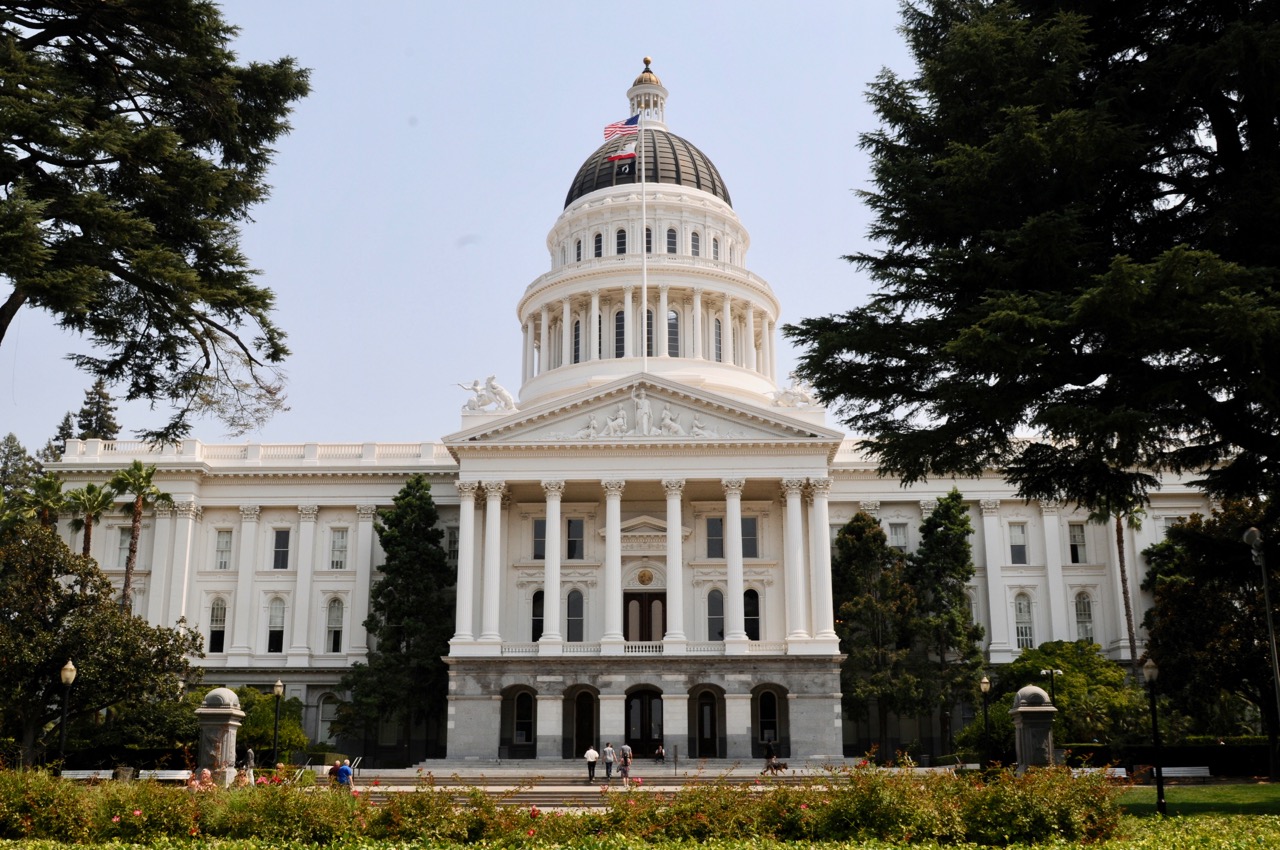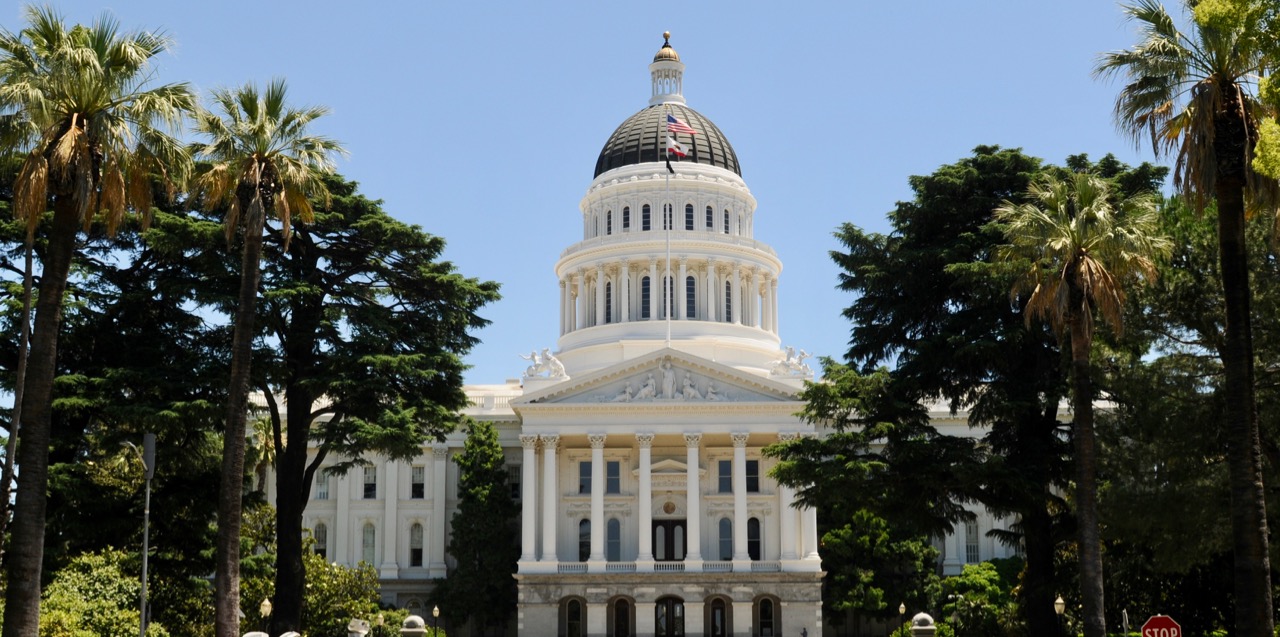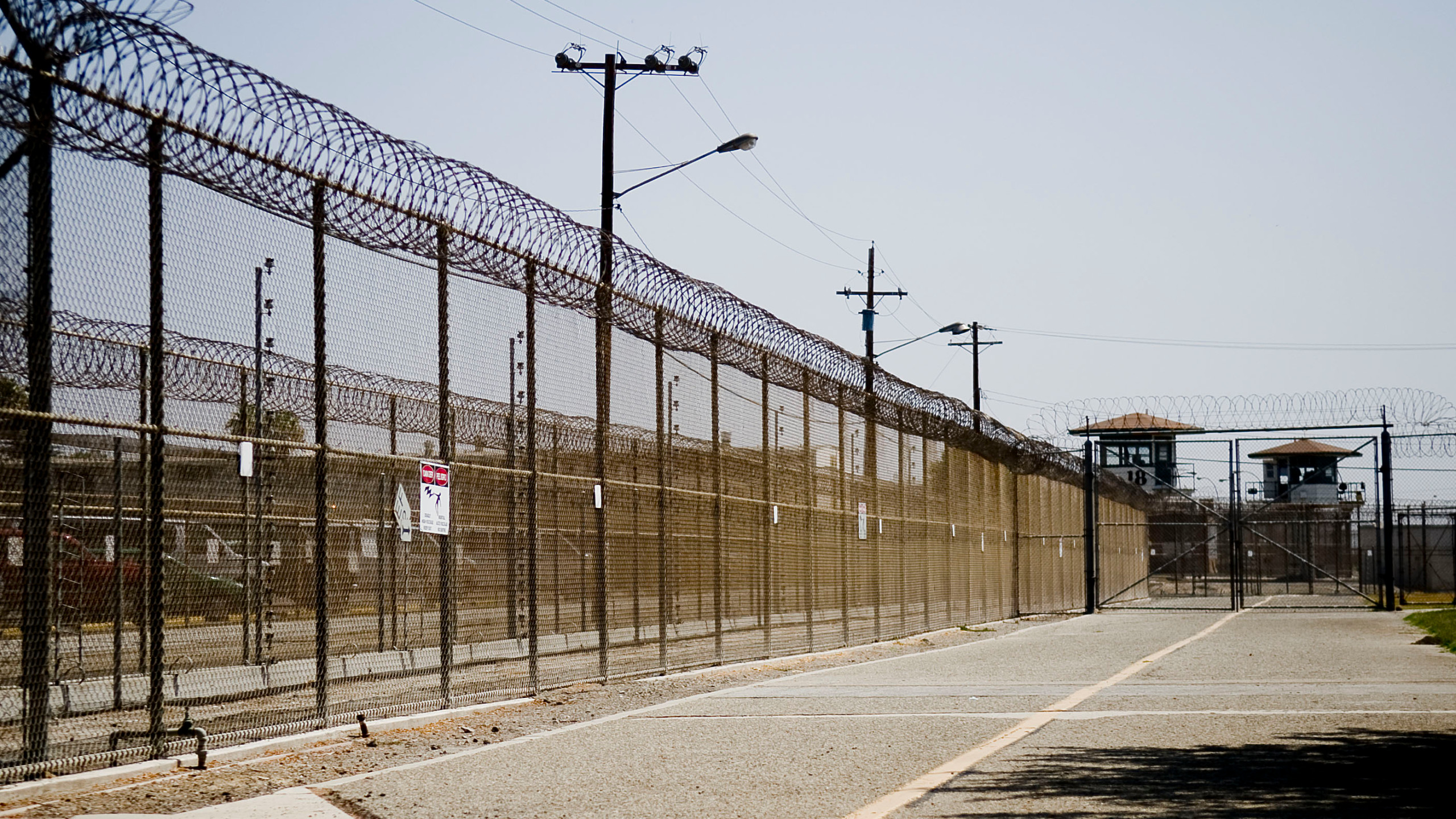
California State Capitol Dome. (Photo: Kevin Sanders for California Globe)
Peaking Under the Dome: Is It Deal-Making or Vote Trading in California’s Capitol?
Penal Codes deal with bribes and the receipt of personal financial benefit by a legislator in their official conduct
By Chris Micheli, January 9, 2022 12:05 pm
We often read about the “wheeling and dealing” among elected officials that occurs in state capitols across this country, even here in California. While some Capitol observers refer to it as deal-making and lawful, others claim it is vote trading and improper or even unlawful. Which one is it? Should a distinction be based upon personal versus district gain or interest? That is the subject of this article, which provides a suggested answer to this fundamental question.
The key issue is whether there is anything improper or unlawful about either a legislator agreeing to vote for one bill because of promises that are made to that legislator, or another legislator or even to the governor. In other words, does the “give and take,” the compromises that are inherent in the lawmaking process, become improper or even unlawful when it occurs among elected officials?
To be clear, openly trading votes is a crime for both state and local officials. Vote-trading for state elected officials has been a crime for a long time, as have other improper influences on the legislative process. California’s Penal Code prohibition on vote-trading has been extended to local officials.
Historically, the courts have been reluctant to examine the internal debates and activities of the legislative branch of government, which is obviously granted “plenary” authority under the state Constitution to make laws. However, with a claim of improper or possibly illegal activity, would the courts examine these allegations of misconduct by a co-equal branch of government engaged in its fundamental work specified in Article IV?
Some Capitol observers note that, if elected officials are precluded from negotiating over provisions of bills, what will happen in the legislative process? Will it get bogged down in gridlock because there is no give-and-take? Others have raised concern whether it is impermissible for legislators to secure tangible benefits for their districts and constituents. While so-called “pork barrel politics” may appear unseemly to some people, perhaps the ultimate example of “sausage making,” does that make it illegal?
Every year in the California State Capitol, there are legislative “deals” between lawmakers or lawmakers and the Governor. With the passage of these deals through legislation voted on by Assembly Members and Senators, there has been private and public debate in and around the Capitol whether such deals violate any federal or state laws. Let us examine some of the laws that may help us address the central question posed.
Crimes Against the Legislative Power
California law contains statutes related to crimes against the “Legislative Power.” These provisions are found in Article III, Sections 9050 to 9056, of the California Government Code and are intended to combat crimes against the Legislature and the legislative process itself.
Section 9050 provides that every person who willfully, and by force or fraud, prevents the Legislature, either of the houses composing the Legislature, or any of its members from meeting or organizing is guilty of a felony.
Section 9051 provides that every person who willfully disturbs the Legislature, or either of the houses composing the Legislature while it is in session, or who commits any disorderly conduct in the immediate view and presence of either house tending to interrupt its proceedings or impair the respect due to its authority is guilty of a misdemeanor.
Section 9051.5 provides that, as used in this article of the Government Code, “bill or resolution” includes a constitutional amendment.
Section 9052 provides that every person who fraudulently alters the draft of any bill or resolution which has been presented to either of the houses composing the Legislature for passage or adoption, with intent to procure it to be passed or adopted by either house, or certified by the presiding officer of either house, in language different from that intended by the house, is guilty of a felony.
Section 9053 provides that every person who fraudulently alters the enrolled copy of any bill or resolution which has been passed or adopted by the Legislature, with intent to procure it to be approved by the Governor, certified by the Secretary of State, or printed or published by the State in language different from that in which it was passed or adopted by the Legislature is guilty of a felony.
Section 9053.5 provides that every person who intentionally, maliciously, with knowledge of the falsity, and with intent to defame a particular legislator, publishes or causes to be published any writing which purports to be a facsimile of an actual bill or resolution, or any part thereof, of the California Legislature, which is not an exact copy of a bill or resolution, or part thereof, which has been introduced in the Legislature, is guilty of a misdemeanor. This section does not apply to the print media, the electronic media, or to news services.
Section 9054 provides that every person who obtains, or seeks to obtain, money or other things of value from another person upon a pretense, claim, or representation that he or she can or will improperly influence in any manner the action of any member of a legislative body in regard to any vote or legislative matter, is guilty of a felony.
Section 9055 provides that every member of the Legislature convicted of any crime defined in this article, in addition to the punishment prescribed, forfeits his or her office and is forever disqualified from holding any office in the State of California.
Section 9056 provides that any person who secures through his or her influence, knowingly exerted for that purpose, the introduction of any bill, resolution or amendment into the State Legislature and thereafter solicits or accepts from any person other than a person upon whose request he or she secured such introduction, any pay or other valuable consideration for preventing or attempting to prevent, the enactment or adoption of such measure, while it retains its original purpose, is guilty of a crime and upon conviction is punishable by a fine of not exceeding $10,000 or by imprisonment in a county jail for not more than one year, or by both that fine and imprisonment.
These code sections provide significant criminal penalties for those persons who interfere with the Legislature and its official proceedings. Individuals are prohibited from engaging in conduct that will falsify legislative documents or create inaccurate materials upon which legislators rely in the lawmaking process.
Applicable Federal and State Laws
It does not appear that either of the major federal criminal statutes apply in the case we have described at the outset: According to the U.S. Attorney’s Office, “The Hobbs Act prohibits actual or attempted robbery or extortion affecting interstate or foreign commerce. Section 1951 also proscribes conspiracy to commit robbery or extortion without reference to the conspiracy statute.
Although the Hobbs Act was enacted as a statute to combat racketeering in labor-management disputes, the statute is frequently used in connection with cases involving public corruption, commercial disputes, violent criminals and street gangs, and corruption directed at members of labor unions.”
There does not appear to be any allegations that there is actual or attempted robbery or extortion in these legislative negotiations. As a result, the Hobbs Act would not likely apply in this case and does not directly answer our question.
The Honest Services Fraud Act is a federal penal statute defined in the federal mail and wire fraud statute which states: “For the purposes of this chapter, the term scheme or artifice to defraud includes a scheme or artifice to deprive another of the intangible right of honest services.”
According to Wikipedia, “the statute has been applied by federal prosecutors in cases of public corruption, as well as in cases in which private individuals breached a fiduciary duty to another. In the former, the courts have been divided on the question of whether a state law violation is necessary for honest services fraud to have occurred.”
The U.S. Supreme Court has interpreted this statute to only cover “fraudulent schemes to deprive another of honest services through bribes or kickbacks supplied by a third party who ha[s] not been deceived”. There does not appear to be any allegations of bribes or kickbacks from a third party occurring in these legislative negotiations. As a result, the Honest Services Fraud Act would not likely apply in this case and does not directly answer our question.
In turning to California law, the state Constitution provides: “A person who seeks to influence the vote or action of a member of the Legislature in the member’s legislative capacity by bribery, promise of reward, intimidation, or other dishonest means, or a member of the Legislature so influenced, is guilty of a felony.”
The California Constitution specifies “a person” who seeks to influence the vote or action of a legislator. This constitutional provision uses member of the Legislature is three places. Even the legislator who is “so influenced” is guilty of a crime under these constitutional provisions.
However, because this section uses “person” and “member of the Legislature,” it appears to be directed at those who are not members of the Legislature and who try to influence a legislator to act in his or her official capacity. If only non-legislators are affected by this provision of the state Constitution, then neither the governor’s nor other legislators’ efforts to “influence” another legislator’s vote is covered here and would likely not apply to address our key question.
However, the California Constitution contains the following provision: “The privilege of free suffrage shall be supported by laws regulating elections and prohibiting, under adequate penalties, all undue influence thereon from power, bribery, tumult, or other improper practice.” This provision raises questions of what constitutes “undue influence” and whether legislative negotiations amount to “power, bribery, or other improper practice”.
Perhaps one could argue that the state’s chief executive (i.e., the Governor) or legislative leaders could impose “undue influence” or “other improper practice” on members of the Legislature, but that appears to be a stretch of the words of this constitutional provision and does not likely apply in our case.
In turning to California statutes, bribery may be a logical place to start to address our fundamental query. Bribery is generally defined as an effort to influence a public official in conducting their official work using money or gifts. In legislative negotiations, neither money nor gifts change hands among legislators or among the executive and legislative branches of state government.
But let us look at the specific California Penal Code sections that deal with public officers, employees, and legislative officers. California’s Penal Code provides the following definition of bribery: “The word ‘bribe’ signifies anything of value or advantage, present or prospective, or any promise or undertaking to give any, asked, given, or accepted, with a corrupt intent to influence, unlawfully, the person to whom it is given, in his or her action, vote, or opinion, in any public or official capacity.”
The law does not require that the bribe is made or received to constitute a crime. However, do legislative negotiations amount to “bribery”? Have the legislators been given something of value by each other or the Governor? In other words, did the governor or legislative leaders promise something with a “corrupt intent to influence” other legislators when they cast votes for a bill, or perhaps the state budget? These are high thresholds to meet and do not appear to be applicable to legislative negotiations.
Nonetheless, the Penal Code deals specifically with bribery by or of legislators and other elected officials. Current law makes it a felony for any person to give or offer to give a legislator a bribe with a corrupt intent to influence the legislator’s vote in an official matter. Section 85 also prohibits someone from using corrupt means like menace and deceit to coerce a legislator to give or withhold the legislator’s vote on a measure.
However, this section of state law is premised upon giving a bribe to a legislator. It seems unlikely that providing funding for a specific legislative district project in the state budget, for example, would constitute a bribe. Do legislative leaders or the governor act with a “corrupt intent” when negotiating with legislators over public policy measures? Bribery is premised upon the elected official receiving a personal financial benefit. No one has argued that occurs in the legislative deliberations described in this case.
Nonetheless, this section of state law has been interpreted to prohibit vote trading. This is because the state’s criminal laws not only outlaw bribery and vote-trading, but also “any attempt by menace, deceit, suppression of truth, or any corrupt means, to influence a member in giving or withholding his or her vote.” This statutory language appears to be a broad prohibition and could be applicable in the legislative negotiations described above.
In addition, using threats or force to compel a public officer to perform an official act could also be prosecuted under the Penal Code pursuant to California’s extortion law. This section provides: “Extortion is the obtaining of property from another, with his consent, or the obtaining of an official act of a public officer, induced by a wrongful use of force or fear, or under color of official right.” Voting is an official act by a legislator. But are legislative negotiations permissible even if they result in a vote by wrongful use of fear or under color of an official right?
Similarly, the Penal Code deals with bribes by legislators and makes it a felony for a legislator to ask, receive or agree to receive something of value with a corrupt intent to influence the legislator’s vote in an official matter. Section 86 also prohibits a legislator from conditioning his or her vote on that of another legislator, which is one definition of vote trading.
Here, again, it appears this Penal Code section deals with bribes and the receipt of personal financial benefit by a legislator in their official conduct. However, would the result of these legislative negotiations amount to “bribery” under state law?
The interesting provision under this Penal Code section is the clause that “prohibits a legislator from conditioning his or her vote on that of another legislator.” This implies vote trading with another legislator. In other words, “if you vote for my bill, then I will vote for your bill.” However, is this what actually occurs in these legislative negotiations? Is there such an explicit quid pro quo involved in budget negotiations, for example? It is unlikely that this would be the case in the State Capitol.
This question leads to an interesting U.S. Court of Appeals for the Ninth Circuit decision that may shed some insight on how to address the fundamental question posed at the outside of this article. The case was Porter v. Bowen and the federal appellate court determined that the First Amendment barred the State of California from closing the 2000 Nader-Gore vote trading websites.
The federal appellate court ruled that the exchange of political rather than personal benefits rendered the activity protected by the First Amendment, even if the vote exchanges were somehow enforceable. To be fair, this opinion deals with individual voters, rather than elected officials. Nonetheless, this part of the court’s opinion provides a sound basis for finding the answer to our question should be no, it is not unlawful voting trading:
Whatever the wisdom of using vote-swapping agreements to communicate these positions, such agreements plainly differ from conventional (and illegal) vote buying, which conveys no message other than the parties’ willingness to exchange votes for money (or some other form of private profit). The Supreme Court held in Brown v. Hartlage, 456 U.S. 45, 55 (1982), that vote buying may be banned “without trenching on any right of association protected by the First Amendment.”
Vote swapping, however, is more akin to the candidate’s pledge in Brown to take a pay cut if elected, which the Court concluded was constitutionally protected, than to unprotected vote buying. Like the candidate’s pledge, vote swapping involves a “promise to confer some ultimate benefit on the voter, qua…citizen[ ] or member of the general public”–i.e., another person’s agreement to vote for a particular candidate. Id. at 58-59.
And unlike vote buying, vote swapping is not an “illegal exchange for private profit” since the only benefit a vote swapper can receive is a marginally higher probability that his preferred electoral outcome will come to pass. Id. at 55 (emphasis added); cf. Marc Johnandazza, The Other Election Controversy of Y2K: Core First Amendment Values and High-Tech Political Coalitions, 82 Wash. U. L.Q. 143, 221 (2004) (“There can be no…serious assertion, that anyone entered into a vote-swap arrangement for private profit or any other form of enrichment.”).
Without money changing hands (the traditional definition of bribery), it appears the First Amendment would protect legislative negotiations. This is because these legislative “deals” amount to “political benefits” being bestowed on constituents, which are protected by the First Amendment, rather than “personal benefits” because they do not accrue to the legislator.
In the end, these legislators are looking out for what is best for their legislative districts and their constituents and the elected officials do not receive any personal financial benefit from their votes. Ultimately, compromise is a part of the legislative process and elected officials must cooperate to ensure there is not gridlock in the process.
- Construction of Eminent Domain Law - February 21, 2026
- Deposition of Expert Witnesses - February 20, 2026
- Response to Interrogatories - February 20, 2026





One thought on “Peaking Under the Dome: Is It Deal-Making or Vote Trading in California’s Capitol?”